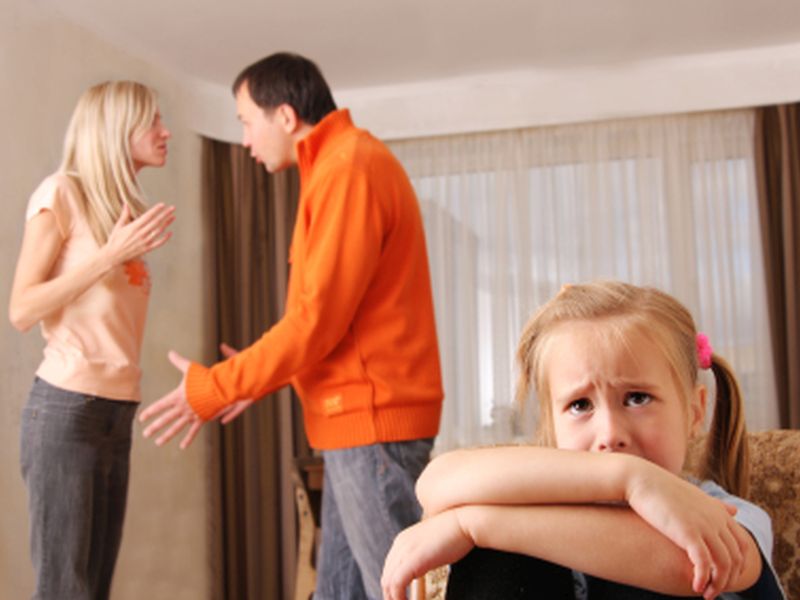
Since last April, hospital emergency rooms across the United States have seen a sustained surge in visits related to the mental health of school-aged kids, a new report reveals.
The findings suggest the COVID-19 pandemic is taking a toll on children because of disruptions to their everyday life, anxiety about illness and social isolation. That conclusion comes from a U.S. Centers for Disease Control and Prevention review of data on hospitals in 47 states. Those hospitals account for nearly three-quarters of emergency department visits nationwide.
The study tracked emergency visits involving children under age 18 who sought care for a mental health issue between Jan. 1 and Oct. 17, 2020.
“Our study looked at a composite group of mental health concerns that included conditions that are likely to increase during and after a public health emergency, such as stress, anxiety, acute post-traumatic stress disorder and panic,” said lead author Rebecca Leeb, a health scientist at the CDC in Atlanta who is part of its COVID-19 Response Team.
“We found that from March through October, the proportion of mental health-related emergency department visits increased 24% for children aged 5 to 11, and 31% among teenagers aged 12 to 17 years, compared to 2019,” Leeb said.
Pediatric mental health visits actually dropped off dramatically from mid-March to mid-April, when stay-at-home orders were in effect in much of the country. Since then, however, such visits have steadily increased, according to the report.
But Leeb said interpreting the numbers is not straightforward.
On the one hand, she said even the large jumps seen in the report likely underestimate the total number of pediatric mental health emergencies. “Many mental health care encounters occur outside of emergency departments,” Leeb explained.
But additional research indicates emergency department visits as a whole dropped significantly between January and October. And that, Leeb said, might mean that “the relative proportion of emergency department visits for children’s mental health-related concerns may be inflated.”
Regardless, Leeb said the findings show that many kids’ mental health was sufficiently concerning to prompt ER visits at a time when the public was being discouraged from using emergency departments for anything but the most critical care.
As such, the findings “highlight the importance of continuing to monitor children’s mental health during the pandemic to ensure access to mental health services during public health crises,” Leeb said.
The study did not set out to identify specific reasons for emergency visits and Leeb said figuring that out requires more study.
But past research shows that the lost sense of safety and disruption to daily living that often accompanies disasters is a common trigger for stress. And that stress, in turn, can lead to isolation and trigger mental health emergencies, Leeb said.
This is not surprising, according to psychologist Lynn Bufka, senior director for practice, research and policy at the American Psychological Association.
“These are stressful times for many and stress can exacerbate mental health concerns,” Bufka noted. “Previous research indicates that a portion of children do have adverse outcomes from traumatic events, and this pandemic is no different.”
Bufka pointed to the wholesale uprooting of kids’ routines and structure, both in terms of school and socializing.
“Children’s play is one way children explore and understand their world, so not being able to play with friends gives them fewer outlets for fun, but also just fewer general opportunities to cope and explore,” she explained.
Kids may also pick up on parents’ stress, which can magnify their own fears.
“All of this has an impact on children and how they understand their world and interpret the events around them,” Bufka said. Some kids adapt more easily; others will struggle. For youngsters with existing mental health problems, the current stresses will add to them.
But parents and other adults can do a lot to support kids and help those who are struggling.
On that front, Leeb advised parents to foster a supportive environment and learn about behavior that signals kids are under mounting stress. The CDC has a number of helpful resources, she said, including an online primer on talking with your child about the coronavirus.
Leeb and her colleagues published their findings in the Nov. 13 issue of the CDC’s Morbidity and Mortality Weekly Report.
We are in this Together!
Health and Wellness Associates
EHS Telehealth
DR MARK WILLIAMS – PSYCHIATRIST
REVIEWED BY DR ANNE SULLIVAN
WordPress: https://healthandwellnessassociates.co/




 If your child is obese, new research suggests that those extra pounds can alter the results of routine blood tests.
If your child is obese, new research suggests that those extra pounds can alter the results of routine blood tests.


